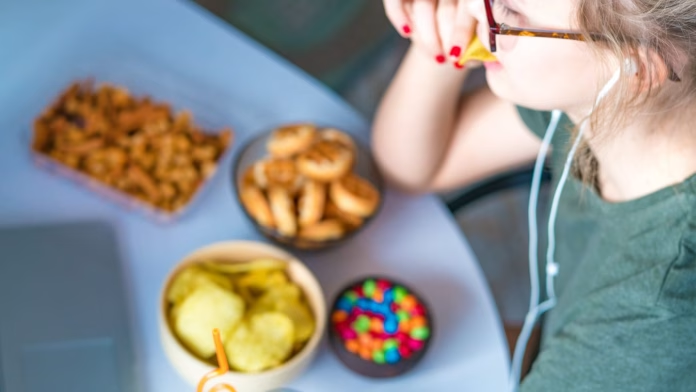In today’s fast-paced world, where stress and responsibilities often take center stage, getting a good night’s sleep has become a precious commodity. Quality sleep is crucial for overall well-being, allowing our bodies to rest, repair, and rejuvenate. However, several factors can disrupt our sleep patterns, including diet. Surprisingly, the foods we consume can impact the quality of our sleep and even lead to disturbances and nightmares. In this article, we will explore the link between diet and sleep, identify seven foods that can sabotage your Sunday rest, and offer healthier alternatives for a restful slumber.
The Link Between Diet and Sleep
Research has shown that the food we consume can influence our sleep patterns. Certain foods and beverages can stimulate the central nervous system, increase alertness, and interfere with the body’s ability to relax and fall asleep. Additionally, some foods can trigger indigestion, heartburn, or discomfort, making it difficult to get a good night’s sleep.
Foods to Avoid for Better Sleep
- Coffee and Caffeinated Beverages
Caffeine is a stimulant that can have a significant impact on sleep. It blocks the action of adenosine, a neurotransmitter that promotes sleepiness. Consuming coffee, tea, energy drinks, or other caffeinated beverages in the evening can make it harder to fall asleep and reduce the overall quality of sleep.
- Spicy Foods and Curries
Spicy foods can cause indigestion, heartburn, and acid reflux, leading to discomfort and sleep disturbances. The capsaicin present in spicy foods can also increase body temperature, making it harder to cool down and fall asleep.
- Alcohol
While alcohol may initially make you feel drowsy, it can disrupt the sleep cycle. It decreases the amount of time spent in the restorative deep sleep stage and increases the likelihood of waking up during the night. Alcohol also acts as a diuretic, increasing the frequency of bathroom trips, further interrupting sleep.
- High-Fat and Greasy Foods
Consuming high-fat and greasy foods before bed can slow down digestion, leading to discomfort and indigestion. These foods can also increase the risk of acid reflux and heartburn, negatively impacting sleep quality.
- Sugary Treats and Desserts
Sugary treats and desserts cause a rapid spike in blood sugar levels, followed by a crash. This rollercoaster effect can disrupt sleep, leading to frequent awakenings during the night.
- Fried Foods
Fried foods are often high in unhealthy fats, which can cause gastrointestinal discomfort and disturb sleep. They require more effort to digest, putting a strain on the digestive system and interfering with the body’s ability to relax and rest.
- Heavy Meals
Consuming a large, heavy meal close to bedtime can lead to indigestion, acid reflux, and discomfort. The body expends energy on digestion, making it harder to transition into a relaxed state conducive to sleep.
Healthy Alternatives for Restful Sleep
- Herbal Teas
Herbal teas like chamomile, lavender, and valerian root have calming properties that can promote relaxation and aid in falling asleep. Sipping on a warm cup of herbal tea before bed can signal to the body that it is time to wind down.
- Light and Nutritious Dinner Options
Opt for light and nutritious dinner options that are easy to digest, such as grilled chicken or fish, steamed vegetables, and whole grains. These foods provide essential nutrients without overburdening the digestive system.
- Sleep-Inducing Foods
Certain foods contain compounds that promote sleep. For example, bananas are a good source of magnesium and potassium, which can help relax muscles and improve sleep quality. Tart cherries contain melatonin, a hormone that regulates sleep-wake cycles. Incorporating these sleep-inducing foods into your diet can positively impact your sleep.
- Foods Rich in Magnesium and Vitamin B6
Magnesium and vitamin B6 are essential nutrients involved in the production of serotonin, a neurotransmitter that regulates sleep. Foods like leafy greens, nuts, seeds, and fish are rich in these nutrients and can support healthy sleep patterns.
- Complex Carbohydrates
Complex carbohydrates, found in foods like whole grains, legumes, and vegetables, promote the release of serotonin and melatonin, promoting a sense of calm and aiding in sleep.
- Foods with Tryptophan
Tryptophan is an amino acid that helps the body produce serotonin and melatonin. Foods like turkey, chicken, nuts, seeds, and tofu contain tryptophan and can support better sleep.
- Incorporating a Bedtime Snack
A light bedtime snack that combines protein and carbohydrates can help stabilize blood sugar levels and prevent hunger pangs during the night. Opt for options like a small handful of nuts and a piece of fruit or a slice of whole-grain toast with almond butter.
Final Thoughts:
Quality sleep is essential for overall health and well-being. By understanding the relationship between diet and sleep, we can make conscious choices to improve our sleep patterns. Avoiding foods that can disrupt sleep, such as coffee, spicy foods, alcohol, high-fat and greasy foods, sugary treats, fried foods, and heavy meals, and opting for healthier alternatives can significantly impact the quality of our sleep. By incorporating sleep-inducing foods and practicing good sleep hygiene, we can banish sleep disturbances and nightmares, ensuring a restful Sunday rest and promoting optimal sleep every night.





